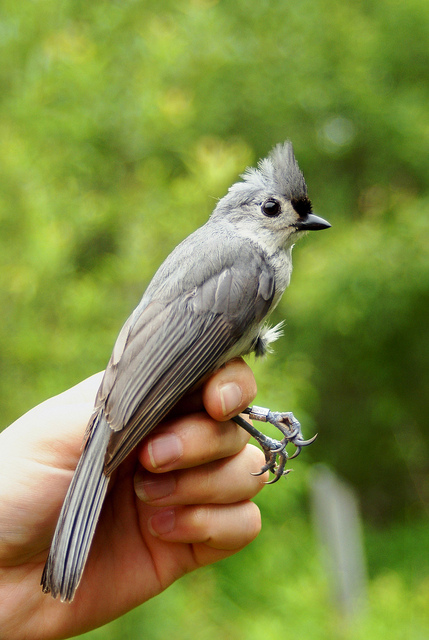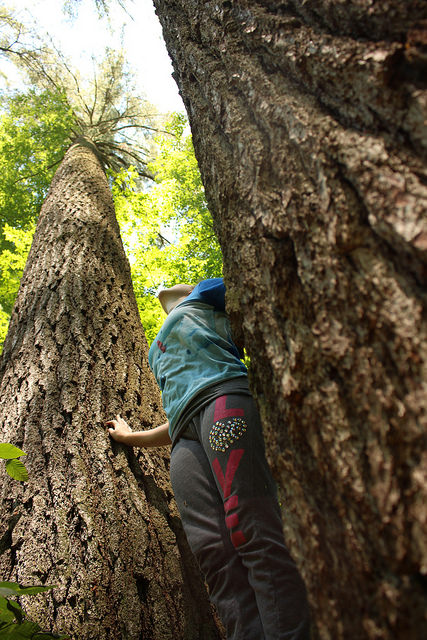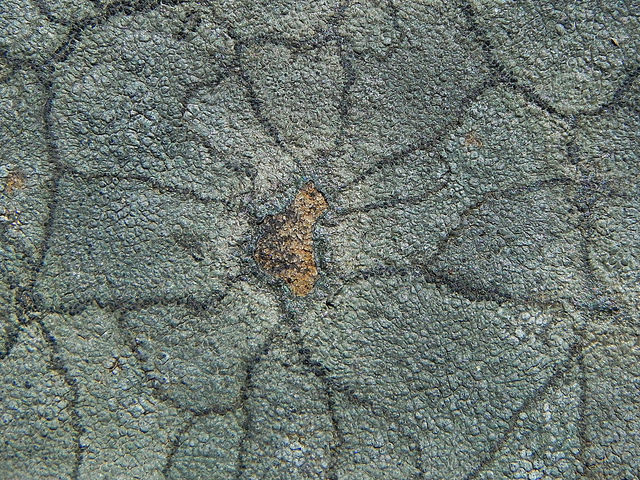
A Tufted Titmouse sports a band similar to the one Wisdom, the 66-year-old albatross has. By Audubon.
Today you are as old as you have ever been. Today, you are as young as you will ever be again. Those of a classic optimistic mindset will likely choose the latter sentiment. For those that carry with them the haze of pessimism the former will ring more true. Or perhaps vice versa. Both are accurate and as honest as a statement about age can be.
Your age has made it possible for you to have the knowledge, experience, and memories that you do. In most cases, as age increases so, too, do those. Imagine then, the age of the forest, the rivers, the rocks and the lichens growing upon them. Can we know those ages? To an extent, with modern scientific testing, perhaps. It is not possible to know the experience of those rivers and forests, the memories of the lichens.
Age and ages – old age, youth, the Middle Ages, the Age of Enlightenment, middle age – some are more concrete than others but none have such strict parameters so as to allow a person to know exactly where they are in time. Years – an annual trip around the sun – determine physical age in the current temporal system. You can know where you are in the scheme of civilized constructs: your age determines when you may cross the street alone, stay home without a parent, shoot a gun, drive a car, operate machinery, serve in the military, vote, and retire.
Does your age let you know where you are in the greater sphere of existence? Compared to a forest, I am young. Compared to a mouse, I am ancient. Compared to a Sugar Maple tree I am approaching middle age. So I am old, young, and every age in between.
The memory of the world is deep enough to lose yourself in it. And while we humans often choose to fill our memories with and measure the passing of time by loss, nature is more forgiving. We remind ourselves with stories and photos, monuments and books, about those that have come before, about our faint footprints on history, about our mistakes and our triumphs.
The memory of the world (not the human world – the greater world) knows that the mistakes and triumphs are nothing more than the leaves of one autumn blown through the landscape to disappear amongst the decomposers. The memory of the world knows that loss is necessary for growth, rebirth, and life itself and is not, in itself, a timekeeper. The memory of the world has learned that there are, in fact, no benchmarks that accompany aging. It knows that each is an individual, with its own path before it, to play out as no other existence ever has.
Perhaps as we approach the end of a calendar year, we would be wise to change a perspective. Benchmarks that define humans are not the only ones, nor should one human’s aging determine what we should expect of another’s. While we would be disbelieving of a 66-year-old human female birthing young, the oldest known bird, a Laysan Albatross named Wisdom, just laid her 41st egg at age 66.

Old-growth Trees by Audubon.
Ocean quahog clams can live over 500 years and Greenland sharks aren’t even mature until they are 100 years old. A koi fish in Japan that died in 1977 was 226 years old, older than the United States of America at the time. In the memory of the world the human perspective is new. And in that perspective, our value of things based on age seems, well, foolish.
The “newest” technology, innovation, or idea is new for just a day, a month, or a year. The state of this country, of the world, in the past few years, has changed dramatically from what it once was. For some, older was better and they long to go back. Others continue looking forward to the change that is constant. There is disruption and disbelief, disrespect and disenchantment. There is hope and enthusiasm, confidence and contentment. We recall the pain of the past, the losses of the past, and try to bring those forward to inform the present. What if we went farther back, to a place where knowledge knew to make only life the memory? What if we forgive the pain and the loss and concentrate on the greater life?
As we finish this trip around the sun, let us all be old and young and everything. Let us remember that we know, just as the whales and the redwoods and a 66-year-old albatross do, that the point of being here is to live honestly whatever age you are. Eat, breathe, reproduce, thrive, play, and mourn not the inevitable death of yourself or anyone else. Carry within you the memory of a world that knows age doesn’t matter.
Audubon Community Nature Center builds and nurtures the connections between people and nature. The trails are open for hiking or skiing from dawn to dusk and the Nature Center is open from 1 p.m. – 4:30 p.m. daily except Saturdays when it opens at 10 a.m. Visit auduboncnc.org for more information or call (716) 569-2345.
Sarah Hatfield is a naturalist at ACNC.


Recent Comments